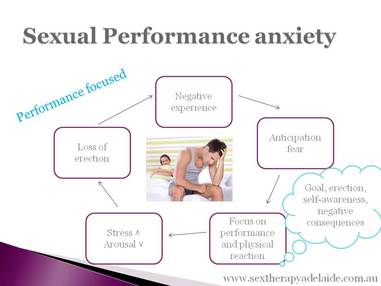|
A question I hear often during consultations: “Why do I suffer from erectile dysfunction?” Or “What is causing my premature ejaculation?”. Although every client and all circumstances are different, the triggers that cause these sexual problems can be very similar. In addressing these questions, we often come to talk about sexual performance anxiety. Performance anxiety in a sexual arena is common. But how does it work? And, more important, what can you do about it?
0 Comments
Prostate cancer can be a very scary diagnosis and can evoke fear of losing masculinity. After the diagnosis usually men (and their partners) are focused on surviving the cancer and choosing the best treatment option. But soon after the surgery (prostatectomy) they might notice changes in their body and sexual functioning. We would like to prepare you for some of these changes and inform you about the options for treatment.
 Being in a long-term relationship can offer various benefits such as trust, understanding, respect, and some form of predictability. These factors can contribute to a feeling of settlement which a lot of people strive towards. Going through the stages of getting to know each other, discovering each other’s tastes and preferences, having your first disagreement, discussing future perspectives, understanding family background, morals, religion and values, is very exciting, rewarding and challenging at the same time. Most people appreciate the phase of settling and finding balance and harmony as well. Sex and age seem to have a challenging relationship. Even in modern society the common myth that at some age you are too old to have sex remains unchallenged. When we see older people walking down the road, laughing or having a drink, do we think they are too old to walk, to laugh or to have a drink? So why is this different with sex?
More than half (54%) of men and almost a third (31%) of women over the age of 70 report they are still sexually active, with a third of these men and women having frequent sex – meaning at least twice a month – according to data from the latest wave of the English Longitudinal Study of Ageing (ELSA). “Meet Kate and Mark. They are in their early thirties and have been together for 8 years. They are ready to start a family and have tried for several months to conceive. The disappointment of having her period every month makes Kate feel sad and unsettled. She now uses ovulation tests to increase her chance of pregnancy which has caused the sexual interaction to be timed and on demand. This has negatively impacted Mark’s desire to be intimate as intercourse has become a performance with high expectations. The sex has become single focussed on his ejaculation to the cost of their intimacy. Due to this demand on his sexual performance and the lack of intimacy his erection has lost strength and sometimes disappears completely. This issue puts both partners under even more stress. The arguments start to build...“
Trying to have a baby sounds very romantic and it can be. But for some couples the process of |
Categories
All
Archives
December 2020
|


 RSS Feed
RSS Feed

